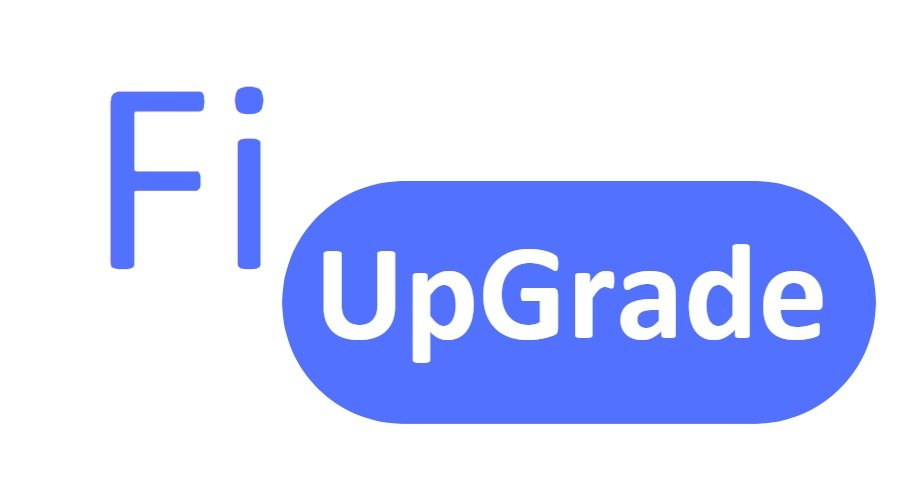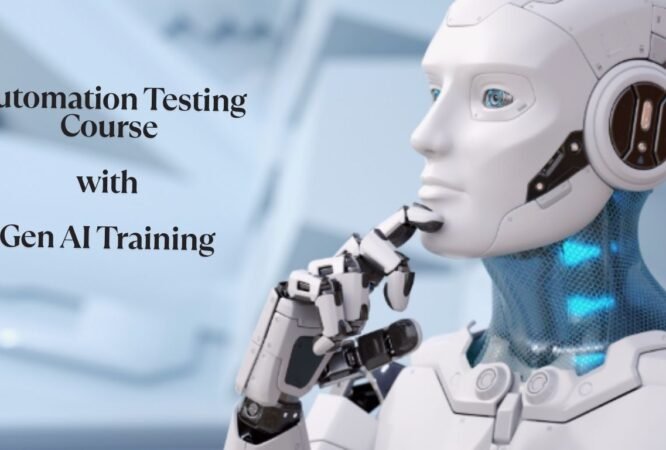Course Description The Digital Marketing Course at FiUPgrade is a comprehensive program designed to equip students and professionals with the skills required to excel in the ever-evolving world of digital marketing. This course covers all aspects of digital marketing, from …
Course Description
The Digital Marketing Course at FiUPgrade is a comprehensive program designed to equip students and professionals with the skills required to excel in the ever-evolving world of digital marketing. This course covers all aspects of digital marketing, from fundamental concepts to advanced strategies, ensuring that learners can develop, implement, and manage successful digital marketing campaigns across various platforms.
Whether you’re a beginner looking to start a career in digital marketing or a seasoned professional aiming to sharpen your skills, this course is tailored to meet your needs. Through a blend of theoretical knowledge and practical application, you will learn how to leverage digital channels such as search engines, social media, email, and content marketing to drive business growth and brand awareness.
Key Learning Areas:
- Search Engine Optimization (SEO): Master the art of optimizing websites to rank higher on search engines like Google, driving organic traffic and improving visibility.
- Search Engine Marketing (SEM) & Pay-Per-Click (PPC): Learn how to create and manage paid advertising campaigns on platforms like Google Ads, maximizing ROI through targeted marketing strategies.
- Social Media Marketing (SMM): Develop effective social media strategies to engage audiences on platforms like Facebook, Instagram, Twitter, and LinkedIn, and build a strong brand presence.
- Content Marketing: Understand the role of content in digital marketing and learn how to create compelling content that attracts, engages, and converts your target audience.
- Email Marketing: Explore the best practices for creating and managing email campaigns that nurture leads, increase customer retention, and drive conversions.
- Analytics & Data-Driven Marketing: Gain proficiency in using tools like Google Analytics to measure, analyze, and optimize digital marketing campaigns based on data-driven insights.
- Mobile Marketing: Learn how to effectively reach your audience on mobile devices through mobile-optimized content, apps, and SMS marketing.
- Affiliate Marketing: Discover how to build and manage affiliate marketing programs that generate additional revenue streams for businesses.
- Online Reputation Management (ORM): Understand the importance of managing a brand’s online reputation and learn techniques to monitor, respond, and maintain a positive digital presence.
- Conversion Rate Optimization (CRO): Learn how to optimize websites and landing pages to increase the percentage of visitors who take desired actions, such as making a purchase or signing up for a newsletter.
Career Focus: This course is designed to prepare you for various roles in digital marketing, such as Digital Marketing Manager, SEO Specialist, Social Media Strategist, Content Marketer, PPC Manager, and more. With 100% placement assistance, you’ll receive support in landing a job in the fast-growing field of digital marketing.
Curriculum
- 15 Sections
- 86 Lessons
- 8 Weeks
- Module 1: Introduction to Digital Marketing4
- Module 2: Search Engine Optimization (SEO)7
- 2.0Introduction to SEO: On-page vs. off-page SEO
- 2.1Keyword research: Tools and techniques for finding the right keywords
- 2.2On-page optimization: Title tags, meta descriptions, and URL structure
- 2.3Technical SEO: Site speed, mobile-friendliness, and indexability
- 2.4Link building strategies and best practices
- 2.5Local SEO: Optimizing for local search results
- 2.6SEO tools: Google Search Console, Ahrefs, SEMrush
- Module 3: Search Engine Marketing (SEM) & Pay-Per-Click (PPC)7
- 3.0Introduction to SEM: Paid search fundamentals
- 3.1Google Ads: Campaign setup, management, and optimization
- 3.2Keyword bidding strategies: Manual vs. automated bidding
- 3.3Creating effective ad copies and landing pages
- 3.4A/B testing and performance tracking
- 3.5Understanding quality score and ad rank
- 3.6SEM tools: Google Ads, Bing Ads, and SEMrush
- Module 4: Social Media Marketing (SMM)6
- 4.0Social media platforms: Understanding different platforms and their audiences
- 4.1Creating a social media strategy: Content planning and scheduling
- 4.2Paid social media advertising: Facebook Ads, Instagram Ads, LinkedIn Ads
- 4.3Building and engaging with communities on social media
- 4.4Measuring social media success: Analytics and KPIs
- 4.5Social media tools: Hootsuite, Buffer, Sprout Social
- Module 5: Content Marketing6
- 5.0The role of content in digital marketing: Types of content and their purposes
- 5.1Content creation: Blogging, video, infographics, and more
- 5.2Developing a content calendar: Planning and consistency
- 5.3Content distribution: Getting your content seen by the right audience
- 5.4Content marketing metrics: Measuring success and ROI
- 5.5Case studies in successful content marketing
- Module 6: Email Marketing7
- 6.0Introduction to email marketing: Benefits and best practices
- 6.1Building and segmenting email lists: Targeting the right audience
- 6.2Crafting compelling email campaigns: Subject lines, copywriting, and CTAs
- 6.3Automation in email marketing: Drip campaigns and personalized emails
- 6.4Email deliverability: Ensuring your emails reach the inbox
- 6.5Analyzing email marketing performance: Open rates, click-through rates, and conversions
- 6.6Email marketing tools: Mailchimp, Constant Contact, HubSpot
- Module 7: Analytics & Data-Driven Marketing6
- 7.0Introduction to digital marketing analytics: Key metrics and KPIs
- 7.1Setting up Google Analytics: Tracking website performance
- 7.2Analyzing user behavior: Traffic sources, bounce rates, and session duration
- 7.3Conversion tracking: Measuring the effectiveness of your marketing campaigns
- 7.4Creating and interpreting reports: Turning data into actionable insights
- 7.5Advanced analytics tools: Google Data Studio, HubSpot Analytics
- Module 8: Mobile Marketing6
- 8.0Understanding mobile users: Behavior and trends
- 8.1Mobile-friendly websites: Responsive design and mobile SEO
- 8.2SMS and push notification marketing: Reaching users directly
- 8.3Mobile app marketing: Promoting and optimizing apps
- 8.4Mobile advertising: In-app ads, mobile search ads, and more
- 8.5Measuring mobile marketing success: Tools and techniques
- Module 9: Affiliate Marketing6
- 9.0Introduction to affiliate marketing: How it works
- 9.1Setting up an affiliate program: Choosing the right affiliates
- 9.2Managing affiliate relationships: Tools and strategies
- 9.3Tracking affiliate performance: Attribution models and tools
- 9.4Compliance and legal considerations in affiliate marketing
- 9.5Case studies: Successful affiliate marketing campaigns
- Module 10: Online Reputation Management (ORM)5
- 10.0Understanding online reputation: The impact of reviews and social media
- 10.1Monitoring brand mentions and sentiment: Tools and techniques
- 10.2Responding to negative feedback: Best practices for crisis management
- 10.3Building a positive online reputation: Strategies and tactics
- 10.4Case studies in ORM: Lessons from real-world scenarios
- Module 11: Conversion Rate Optimization (CRO)6
- 11.0Introduction to CRO: The importance of optimization
- 11.1Analyzing user behavior: Heatmaps, session recordings, and user testing
- 11.2Improving website usability: Design, navigation, and content
- 11.3A/B testing: Experimenting with variations to boost conversions
- 11.4Optimizing landing pages: Key elements for success
- 11.5CRO tools: Google Optimize, Optimizely, Hotjar
- Module 12: Digital Marketing Tools and Platforms4
- Module 13: Real-World Digital Marketing Projects6
- 13.0Project 1: SEO and content marketing strategy for a local business
- 13.1Project 2: Creating and managing a Google Ads campaign
- 13.2Project 3: Social media marketing strategy for a startup
- 13.3Project 4: Email marketing campaign for a product launch
- 13.4Final project: Comprehensive digital marketing strategy for a real-world client
- 13.5Peer review and feedback sessions
- Module 14: Advanced Digital Marketing Strategies4
- Module 15: Career Development and Placement Support6
- 15.0Preparing for digital marketing roles: Resume writing, LinkedIn optimization
- 15.1Building a professional portfolio: Showcasing your projects and skills
- 15.2Interview preparation: Common questions and best practices
- 15.3Networking strategies: Building connections in the digital marketing industry
- 15.4Job search assistance: Leveraging job boards, recruiters, and more
- 15.5100% placement assistance: Connecting with potential employers
You might be intersted in
-
0 Students
-
10 Weeks





